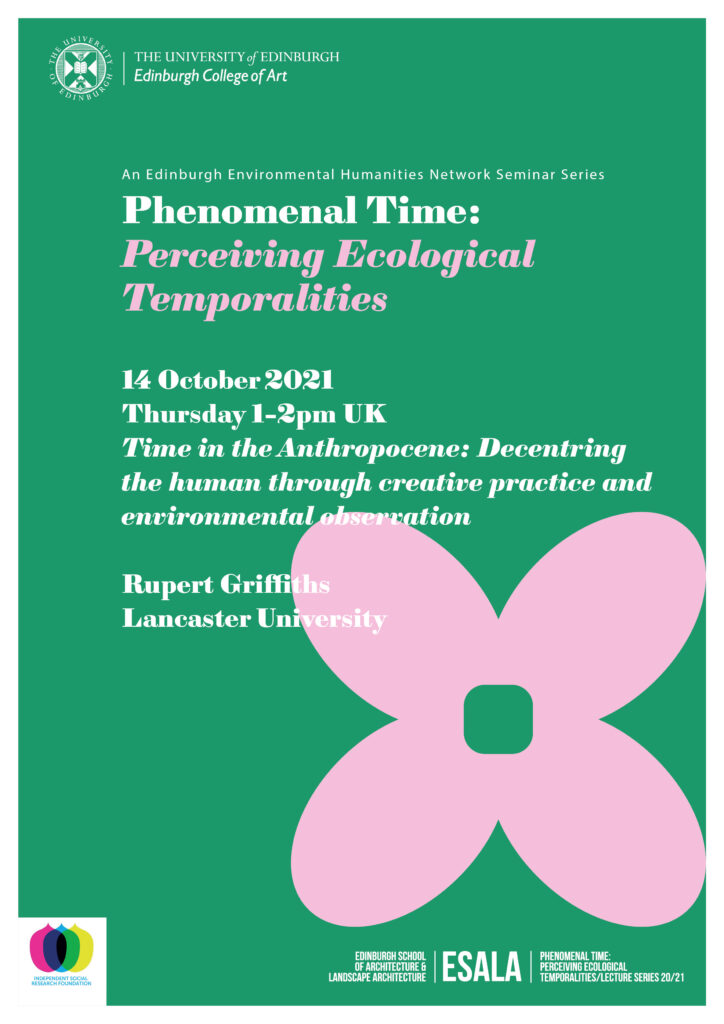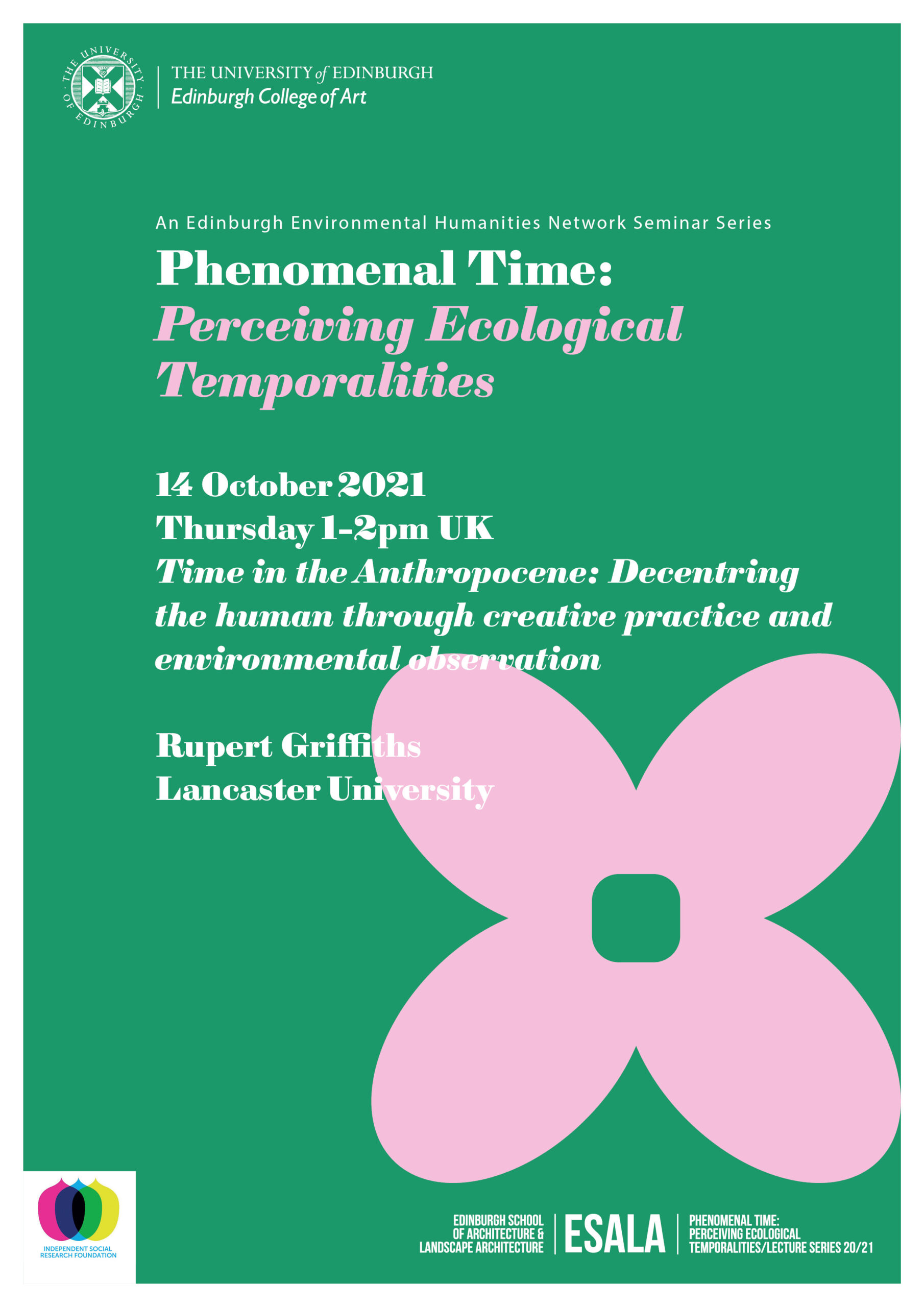
Phenomenal Time: perceiving ecological temporalities
An Edinburgh Environmental Humanities Network online seminar series
It has become a truism that time is intangible, something that escapes our everyday senses. And yet, we find a wide range of calls within the Environmental Humanities (EH) to reconsider the conceptions of time that guide our understandings of process, coordination and social change. Anna Tsing (2015), for example, identifies ideologies of progress as particularly detrimental for efforts to cultivate ‘arts of attention’, proposing frameworks where time is multiple, interconnected and multi-directional. Here we are able to ‘look around’ for alternative possibilities rather than narrow ideas of what ‘lies ahead’.
Others, however, have worried that a needed reorientation within time is hampered by a lack of awareness of other possibilities. Kyle Powys Whyte (2021) has recently challenged discourses of speed and haste in relation to climate change mitigation, which reinstate colonial processes of land dispossession, arguing instead for the responsibilities inherent within ‘kinship time’. We might also think of geologist Marcia Bjornerud, who has argued that humanity is in the grip of ‘chronophobia’ (2018), unwilling to truly understand the scale of geological time and suffering from a dangerous temporal illiteracy as a result. Other avenues for approaching temporal issues such as the ecological study of phenology, or the study of timing in plants and animals, have not yet been explored by EH scholars for their possibilities.
This seminar series takes up the problem of how to conceive of alternative temporal frameworks through the problem of perception. How might we challenge the idea that time is intangible and instead foster an understanding of the ways time can be sensed in myriad ways within our environments? Our focus will be the work of scholars, artists, designers and practitioners who are exploring the question of “what is time?” from an ecological perspective, and how to encourage wider awareness of the ways these times appear in our everyday lives. A particular focus for us will be building connections with the field of phenology, drawing it into conversation with the arts and humanities.
Each seminar will be hosted online via Zoom, with opportunities for informal discussion afterwards in SpatialChat. They will generally take place on Thursdays 1-2pm UK Time, with any changes noted below. Use this form to register: https://forms.office.com/r/peiLhVsc25
14 October Rupert Griffiths (Lancaster University, UK) Time in the Anthropocene: Decentring the human through creative practice and environmental observation



